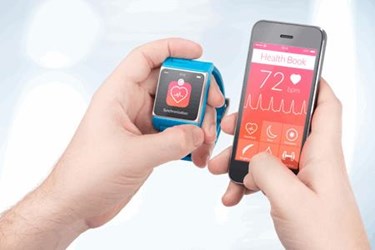Mobile Apps: A Look At Their Use In The Precommercial Phase

By Ilyssa Levins
In the precommercial phase, companies invest significant time and money to recruit patients and collect real-world data as well as uncover gaps in current therapies and emerging or anticipated public health needs. That’s why pharmaceutical companies are proactively evaluating and deploying mobile apps to accomplish these goals more quickly, efficiently, and effectively. You can ping someone and get their attention immediately – faster than eliciting a response from an email. This type of engagement is also more conducive to a variety of lifestyles than any other medium.
“Where I teach at a clinic, no one goes to their desktop. They reach into their pockets for their phones,” states Pfizer’s Diana Morgenstern, MD, senior medical director, global medical affairs, women’s health. “If you want to get your message out to a younger (millennial) population, this is the way to reach them and cut through unwanted complexity or even collect relevant data.”
According to a research study on the New Rules of Healthcare Engagement fielded by Healthcasts, multiscreen engagement is the most effective way for doctors to access content. Research suggests that nearly 63 percent of HCPs are now “triple-screen” users. Additionally, the research demonstrates that physician use of smartphones and tablets to access information about new drugs has increased 133 percent over the last 5 years.
Recruitment and Data Collection
Mobile apps are useful for patient recruitment. For example, companies could provide a mobile app to patient advocacy groups so members can view clinical trial options for a specific disease. This is particularly useful when interacting with rare disease patients who are concerned with privacy and may be reluctant to engage outside of their personal sphere given the stigma of their condition.
“Digital communications, websites, and social media are increasingly the optimal way of connecting with our rare disease patient community because many of them are geographically dispersed and also because usually the latest information is available electronically before anywhere else,” states Amit Rakhit, MD, chief medical and portfolio officer at Ovid Therapeutics.
Mobile apps allow companies to collect data without an office visit. Thus, apps offer an efficient approach for diverse study types. For example, they could be useful for everything from open-label trials where study participants need to be monitored on drug therapy until approval, to the collection of patient-reported outcomes (PRO) where HIPAA-compliant mobile platforms enable investigators to ping patients to enter information into the diary and access their entries in real time. All of these options provide a more streamlined and lower-cost manner of data collection than traditional methods. You can get many more data points by substituting office visits with mobile app pings.
“Real-world evidence provides critical information about how a therapeutic agent is being used in a ’true’ environment versus the ’artificial’ environment of a clinical trial,” asserts Robin Winter-Sperry, MD, global MS franchise strategy & tactics, medical affairs for Genzyme. “With mobile apps, companies can learn more about PROs and enhance appropriate communication between involved parties by collecting invaluable information that not only affects current treatment practices, but future ones as well, based on a growing body of evidence.”
Some companies are using mobile apps for patient registries. In an ongoing national patient registry of patients being treated for a chronic neurological condition, patients and caregivers are permitted to choose their preferred communications modality. In this patient registry, options include outbound call-center, email/portal, or HIPAA-secure mobile app.
“The preference for the mobile app has been very clear, with over half of registrants electing this preference, a rate three times greater than those selecting email/portal,” says Rob Dhoble, president of Adherent Health and founder of Mobile Health Library (MHL), a mobile HIPAA-compliant clinical engagement system that also allows for full OPDP brand compliance. “Perhaps most importantly, in this registry, the mobile app channel has outperformed the outbound call center and email/portal channels with respect to on-time completion of PRO questionnaires.”
High-Speed Research and Education
Mobile apps can help companies identify gaps in a therapeutic category. For example, if a company is planning to introduce a new medication for attention deficit hyperactivity disorder (ADHD), an app can be used to benchmark a gap in treatment relating to symptoms as measured by patient self-reporting. This data can become the joint property of the participating physician, the patient, and the sponsoring department providing a clearer picture of a potentially unmet need.
Companies may also share independent coverage of scientific-data presentations and publications through mobile apps based on scientific-exchange and safe-harbor policies. The term “scientific exchange” refers to drugs or medical devices that are being investigated or very new uses for drugs or devices that have been approved for another use.
Susan Malecha, director national managed care liaisons, US medical affairs at Genentech says “Scientific exchange can afford patients, providers, and payers to make the best therapeutic selection to optimize patient care. She adds, “We need to be open to innovative solutions for information exchange. With the shifting environment from fee-for-service payment to quality of care, healthcare decision makers need real-time data.”
Scientific exchange occurs when companies exchange medical and scientific information or data in a nonpromotional context or in response to unsolicited questions from healthcare professionals, healthcare organizations, patient advocacy groups, and third-party media. This can include scientific information for unapproved products or for new uses for approved products.
According to Peter J. Pitts, a former FDA associate commissioner and now chief regulatory officer at Adherent Health, “The FDA is likely to significantly liberalize oversight of the judicious sharing of truthful, accurate, and nonmisleading off-label communications in light of recent First Amendment rulings and the agency’s program to better utilize real-world data for regulatory decision-making.”
Companies that employ mobile apps to stay connected to the physician community can more quickly respond to unsolicited requests for information about the drug under study. Anticipated responses can be “queued up” within an app environment to answer instantly and more quickly than an email. Or the app response can ask the inquiring physician to contact the medical department. Mobile apps can also help medical departments digitally update their responses. With any of the communications mentioned, companies can add a video, lecture, or a variety of media – for instant access. “We need to understand what the customer desires and acknowledge that times are changing and that regulatory compliance can’t be a roadblock for not using mobile apps for medical communications,” states Morgenstern.
A Look Ahead
While mobile apps are currently underutilized, an ad hoc survey among medical professionals confirms there is agreement that mobile apps can help:
- Confirm needs of key opinion leaders for marketed products
- Collect data on marketed products for patient registries for health-economic claims
- Ensure the safe use of marketed products with challenging risk profiles
- Document how a patient is doing on current therapy using real-time symptom tracking
- Enable patients to provide feedback to HCPs on medication usage between office visits (aggregate data)
“There are so many opportunities to deliver on public health needs for patients, caregivers and providers with the use of mobile apps, particularly with rare disease,” says Shalu Bhambhani, business insights and operations manager for the genetic diseases franchise at Shire. “Apps can help with disease and safety education, provide reminders for dosing and refills, direct patients to infusion centers and places to get tested, and provide guidance on insurance access. Plus, well-developed apps enable patients to get their information in one place, making it extremely efficient.”
Respondents also agreed there are barriers to securing the approval of mobile apps in the medical, legal, and regulatory review process. This is not surprising; digital innovation can present itself as a challenge for any organization, including but not limited to securing internal regulatory approval for a new digital tool. “There’s a difference between what’s in compliance and what a company views as its own internal best practices,” says Pitts. ”The FDA is very supportive of apps that advance public health through the promotion of safe use and outcomes.”
It’s important for all audiences to understand the difference between a medical device and an app. There is an FDA guidance that clearly differentiates these. It’s also critical for cross-functional teams to collaborate on a streamlined review process so that mobile apps can be reviewed efficiently for optimal functionality and rapid deployment in the market. It’s possible to "pretest" an app for compliance before it's been constructed in three ways:
- Compare desired app key functionalities to existing apps that can be reviewed live in copy review meetings
- Conduct a live pretest of desired app functionalities using custom solutions from digital agencies
- Conduct a live pretest of the actual app in a secure testing environment
Says Winter-Sperry: “Mobile apps will increase in importance as a resource and educational tool in our complex and dynamic medical environment on both a local and global level. Additional opportunities will evolve as payers and other stakeholders become involved along the patient journey.”
“Digital transformation with mobile apps is an imperative for the patients and patient advocates who rely on these channels for information about diseases and treatment options,” says Delyn Long, US marketing head, lysosomal storage disorders, genetics franchise at Shire. “We have a moral and commercial responsibility to integrate digital initiatives that meet regulatory requirements into communication strategies globally.”
Thérèse McCall, PhD, who specializes in medical affairs strategy and excellence, believes there is an urgent need for Industry to move faster in this space. “The newest and future generations of physicians, healthcare providers, and patients are mobile literate and expect mobile solutions to meet their needs. Medical Affairs teams are uniquely positioned within their organizations to play a critical leadership role as the voice of the HCP and the patient to advance the development and utilization of mobile apps to enhance patient treatment and disease outcomes.”

Ilyssa Levins is president and founder of the Center for Communication Compliance (CCC). She can be reached at ilevins@CommunicationCompliance.com.
